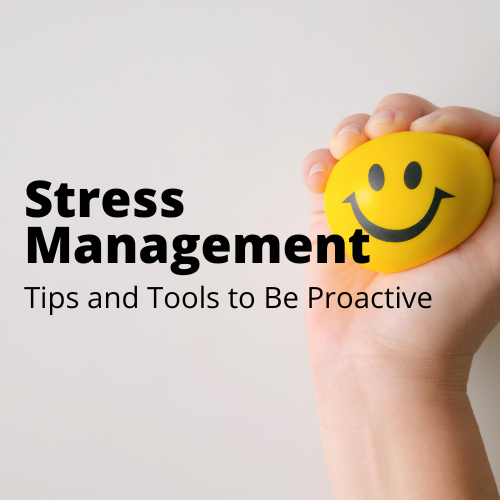10 Stress and Anxiety Management Techniques:
Stress and Anxiety Management Techniques: Stress and worry are all too typical in the fast-paced world of today. It’s understandable why many people feel overburdened by the demands of their jobs, personal struggles, and international uncertainties. However, the first step to properly addressing these difficulties is realising that mental health matters. Anxiety and stress coping mechanisms are vital resources that can assist people in taking back control, enhancing their mental health, and living more balanced, healthy lives.
The nature of stress and anxiety, their effects on mental health, and useful coping mechanisms for handling these feelings will all be covered in this blog. If you’re having trouble managing your stress or anxiety, or if you just want to know how to properly look after your mental health,

1. An Overview of Stress and Anxiety: Fundamentals
It’s critical to comprehend what stress and anxiety are and how they impact our bodies and thoughts before delving into coping mechanisms.
External demands, such as deadlines, professional duties, family responsibilities, or financial worries, can cause stress. In moderation, stress can even be helpful because it inspires us to take on new goals. Stress is a natural part of life. However, stress can be harmful to our health if it persists or becomes too much to handle.
Conversely, anxiety is a state of trepidation or concern about something whose outcome is uncertain. Anxiety is more widespread and generalised than stress, which is frequently linked to particular incidents.
2. The Effects of Prolonged Stress and Anxiety on Your Health
Anxiety and stress are normal reactions to life’s obstacles, but prolonged or untreated stress can have detrimental effects on one’s physical and emotional well-being.
Physical Health: Long-term stress can cause a variety of health concerns, such as immune system weakness, heart disease, high blood pressure, and digestive disorders. Insomnia and migraines can also be brought on by or made worse by chronic anxiety.
Mental Health: Burnout, despair, and a sense of powerlessness can result from continuously facing stress and worry. These emotional weights can eventually degrade your quality of life and have an impact on your relationships, productivity at work, and happiness.
Recognising these effects emphasises how crucial it is to develop practical coping mechanisms and stress-reduction techniques.
3. The Power of Breathing: Stress-Reduction Deep Breathing Methods
Deep breathing techniques are among the easiest and most efficient methods to lower tension and anxiety. Stress causes our breathing to become quick and shallow, which can make panic attacks worse. By triggering the body’s relaxation response, deep breathing lowers stress hormone production and promotes mental calmness.
Methods for Deep Breathing Practice:
Locate a peaceful area where you can comfortably sit or lie down.
Let your lungs fill with air by taking a deep breath through your nose for four counts.
For four counts, hold your breath.
Let go of all the stress in your body by softly exhaling through your mouth for six counts.
For a few minutes, repeat this cycle while paying attention to your breathing and letting go of your racing thoughts.
Deep breathing exercises on a regular basis can help you keep composed when faced with anxiety and dramatically lower stress levels.
4. Meditation and Mindfulness: Developing Present-Moment Awareness
Two effective strategies for reducing stress and anxiety are mindfulness and meditation. Instead of worrying about the past or the future, which is frequently the cause of anxiety, these techniques emphasise remaining in the now.
Being mindful entails observing your thoughts, emotions, and environment objectively. Being aware can help you better manage your emotions and maintain composure in the face of stress.Sitting silently and concentrating on a specific object, sound, or sensation—like your breath—is the practice of meditation, which is closely related to mindfulness.
Easy Mindfulness Exercise:
Maintain a straight back when sitting comfortably.
To centre yourself, close your eyes and inhale deeply a few times.
Pay attention to how your breath enters and exits your body.
As your thoughts begin to stray (which they will!), gently bring them back to the feeling of your breath.
Increase the amount of time gradually, starting with 5–10 minutes every day.
By teaching the brain to react to stressful events more calmly, mindfulness and meditation both lessen the detrimental effects of worry.
5. Exercise: The Advantages of Maintaining an Active Lifestyle Exercise is
Exercise is a great way to lower stress and anxiety in addition to being beneficial for your physical health. Endorphins, the “feel-good” chemicals that elevate mood and lower stress, are released by our bodies when we exercise. Additionally, exercise raises energy levels, promotes better sleep, and increases general wellbeing.
Finding a fitness regimen that suits you, whether it be yoga, jogging, swimming, or just taking a stroll in the outdoors, can offer much-needed stress relief.
Exercise Advice to Lower Stress and Anxiety:
Selecting enjoyable hobbies will make you more likely to continue with them.
On most days of the week, try to get in at least 30 minutes of moderate activity.
Consider practicing mindfulness during your workout by paying attention to your breathing or your body’s feelings.
6. The Value of Sleep: How Sleep Promotes Mental Well-Being
The quality of our sleep directly affects our ability to manage stress and anxiety, making it an essential part of mental wellness. We are much less able to control our emotions and react to stress when we don’t get enough sleep. Irritability, increased anxiety, and a diminished capacity for clear thought can result from sleep deprivation.
Sleep Advice for Stress Reduction:
By going to bed and waking up at the same time each day, you can maintain a regular sleep routine.
Establish a soothing sleep ritual, such as reading, having a warm bath, or listening to soothing music.
Limit your intake of alcohol and caffeine, particularly in the evening.
To encourage sound sleep, keep your bedroom cold, dark, and peaceful.
One of the best strategies to lessen the negative effects of stress on your physical and mental well-being is to prioritise your sleep.
7. Eating Well: Providing Your Body with the Fuel It Needs for Mental Health
Your mental health can be significantly impacted by the foods you eat. A well-rounded diet full of vitamins, minerals, and good fats promotes mood regulation and cognitive function. On the other hand, inadequate nourishment can exacerbate anxiety, despair, and stress.
Dietary Items That Reduce Stress:
Omega-3 fatty acids: Associated with reduced anxiety and sadness, omega-3s can be found in walnuts, flaxseeds, and fish like salmon.
Complex carbs: Consuming whole grains, fruits, and vegetables helps keep blood sugar levels steady, which helps prevent mood swings.
Foods high in magnesium: Leafy greens, nuts, and seeds are excellent sources of magnesium, which has a calming effect on the nervous system.
A balanced diet can be a very effective way to reduce stress and improve mental clarity.
8. Creating a Network of Support: Making Connections
Having social support is essential for stress and anxiety management. Making connections with loved ones, friends, or a mental health specialist can offer consolation, direction, and a feeling of acceptance. When you’re feeling overwhelmed, having someone to talk to might help you put things in perspective and lessen feelings of loneliness.
Talk to a Friend: You can feel heard and understood if you talk to a family member or trusted friend about how you’re feeling.
Seek Professional Support: If you feel like you can’t handle your stress or anxiety, think about getting help from a counsellor or therapist. For the treatment of anxiety, cognitive-behavioral therapy (CBT) works especially well.
It is a sign of strength, not weakness, to be willing to ask for assistance.
9. Establishing Limits: Acquiring the Ability to Refuse
Having too many obligations is one of the main sources of stress. Burnout might result from people-pleasing instincts or a fear of disappointing others. Saying “no” when necessary and developing the ability to set boundaries can be effective strategies for safeguarding your emotional well-being.
How to Establish Appropriate Limits:
Don’t be scared to voice your needs and be open about your boundaries with other people.
Set priorities for activities and obligations that support your beliefs and objectives.
Remind yourself that it’s acceptable to turn down requests or invitations if they seem excessively demanding or overwhelming.
You can save energy and keep stress from taking over your life by establishing limits.
10. Getting Professional Assistance: When to Get Stress and Anxiety Support
It might be time to get professional assistance if you’ve tried a variety of coping mechanisms but are still experiencing excessive stress or worry. Professionals in mental health can offer individualised treatment programs that target the underlying causes of stress and anxiety. Depending on your particular needs, therapies like Dialectical Behaviour Therapy (DBT), Cognitive Behavioural Therapy (CBT), or even medication may be suggested.
It’s critical to understand that seeking assistance is a proactive and constructive way to take care of your mental health.
In conclusion
Although stress and anxiety are normal in life, we don’t have to let them rule us. By using constructive coping mechanisms like deep breathing, physical activity, mindfulness, and getting enough sleep.

[…] techniques. We’ll look at how to properly control screen time in order to enhance your mental health in this extensive […]